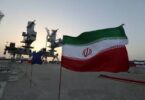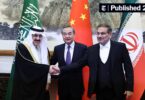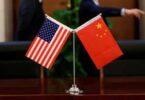The International Day of Education has been commemorated with great zeal and zest and high resolve across the globe but Pakistani leadership and nation susceptibly observed this day because of the current prevailing monetary challenges and economic uncertainty in the country. The President, Prime Minister, Speaker of the National Assembly, and Chairman of the Senate were not available to offer any national pledge on this important occasion. This year the slogan of International Day of Education was to invest in people and prioritize education.
Education is an important element for national development and social change in any nation in the world. Pakistan, being a developing nation and a third-world country significantly lags behind in achieving its goals of literacy uplift and educational development, not in formal education but also in current-day scientific and technical knowledge to fully grasp its national objectives in the contemporary world. Currently, Pakistan’s literacy rate stands at 62.3 percent which is the least with respect to other competing nations in the South Asian region.
Unfortunately, the education sector had never been a priority for the successive governments in Pakistan. Pakistan’s educational budget never exceded 2 percent of the country’s GDP throughout history, which remained a significant reason for educational depletion along with extreme poverty, insufficiently trained and least-educated faculty, inaccessibility, and lack of public awareness.
The public representatives failed to accurately prioritize the national agenda as the successive governments focused on symbolic development and towery projects, defense financing, elite education, and plunged the nation into foreign debt trap while ignoring the education sector, public health, and micro-financing. Such strategies led to poverty, illiteracy, communal gap, and monopoly of cartels in all sectors including education. Currently, the incumbent authorities had put the formal education aside and taken up vocational training and technical education to produce skilled youth to export manpower to foreign nations and help reduce the figures of unemployment in the country.
Realistically, no pivotal change can be brought through the promotion of vocational training except the production of skilled labour and provision of employment abroad, after all a modern formal education is essential for nation-building, technological excellence, and the grooming of the new generation. Therefore, the government must reprioritize its manifesto by increasing its investment in education sector to fully harness the youth with all modern-day skills both in technical and formal education so our nation competes with the world satisfactorily.







